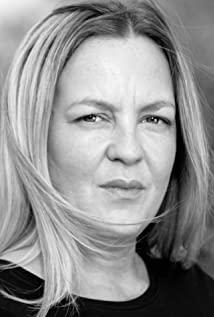. "Suffragette 2015" is a film about the awakening of women's rights. When asked about the question of "what exactly caused the awakening of women’s rights awareness", we might think of the British background at the time, such as the domestic political and economic situation, the international political atmosphere before the world war, etc. However, the film did not Did not deliberately show from these aspects. Obviously, the movie wants to explore this problem from the internal factors of people, then, what will this internal factor be? In my opinion, it is human dignity and the need for human dignity that prompted London women to unite and fight for their rights.
In order to reflect the struggle for women's rights, the film focuses on showing an unequal world. As long as these "inequalities" remain unchanged, women's dignity cannot be discussed. The film set the tone for this inequality from the beginning. When the heroine Maud was working in the factory, a politician's speech came from the loudspeaker outside, which was roughly against granting women the right to vote. However, the reason for the objection turned out to be "female personality lacks calmness and thinking does not know how to weigh." This is a serious gender discrimination. Although the reasons for discrimination seem outrageous today, in London at that time, the cheers for this were loud and loud. This kind of "reason" is widely accepted and recognized by society. Women have no minimum dignity, because the characteristics of women are destined to make them shorter than men. Even more serious is that this politician has provided a reason why women do not need to participate in politics, believing that women's participation in politics can be exercised by their fathers, brothers, and husbands. This kind of totally disregarding women's independent personality and treating them as male vassals is strictly an insult to all women. The film set this tone at the beginning, nothing more than to tell us that an unequal world is difficult to change; to change, only to fight for the right to vote, because the right to vote is the political means to change their destiny.
Under this unequal tone, the film emphatically introduces the heroine Maud's journey from the initial sprouting of rights consciousness, to fighting for her own rights, and finally becoming a staunch feminist fighter. Every change of her thoughts is premised on the loss of her dignity, and every resistance she makes is closely related to the dignity she desires. Next, we might as well explain this a little bit. Maud wanted to hear Mrs. Miller's speech in the hearing of the House of Commons. Only because Mrs. Miller was unable to speak after being domestically abused, she was forced to speak. Although she could not express any opinions on the "right to vote," she explained why she came to the hearing, that is, she hopes that "this life can be lived in a different way." Obviously, this is a sign of her awareness of rights. Because she is dissatisfied with her current living conditions, she hopes that the hearing will prompt a change in the status of women, so that she can exercise her rights from now on. The awakening of the awareness of rights is obviously related to her experience. She is dissatisfied with her current living conditions but has to endure the difference between men and women for equal work but not paid. She has been bullied by the foreman but has to swallow her anger for life. She has no family financial status. The salary earned can only be handed over to the husband for safekeeping. These loss of dignity due to inequality is obviously an important factor in her awareness of rights.
When she participated in a feminist rally for the first time, she was not only beaten up by the police, but also arrested in jail. She seemed to realize that the acquisition of individual rights could not leave the overall change in the status of women; when she heard her husband said that if she gave birth to a daughter, she When she had the same fate as her, she decided to participate in the second rally and was arrested again. As a result, the police used her husband to deal with her. She was finally swept out of the house. Her custody of her son (of course not in the legal sense) She was also deprived of it. Since then, she realized that personal rights could not be obtained under the current system, and her dignity could not even be obtained from her husband, so she firmly embarked on the road of struggle, as she said: “If the law does not allow When I see my son, I will fight until it changes.” Obviously, she cannot get the respect she deserves as a woman, and she cannot feel the dignity she deserves as a mother, which is the main reason why she embarked on the path of feminist resistance.
Her two confrontations with patrol officer Mr Steed fully demonstrated that she was fighting for dignity. When Steed wanted to use her to convey information about feminist activities to the police, she not only rejected Steed’s request to make her a rape in a letter, but realized that she and men have the same value, because since men fight for freedom is Just, then women fighting for freedom is also just as justice, but the field of fighting is different. In addition, she also feels that she can be as loyal to her beliefs as a man without betraying herself. Obviously, this letter is an expression of dignity and a condition for her to win respect. The second confrontation was a conversation between her and Officer Steed in prison after they blew up the house of the Chancellor of the Exchequer while building a villa. In this dialogue, she not only refuted the hypocrisy of Officer Steed with dignity (why did she not want to put innocent women in danger, why stand by and watch the women beaten in the riots?), but also accused the unreasonableness of the law (women do not have a say in the legislation) , Explained the rationality of feminist violence (war is the only language that men can hear), and even silenced the police officer’s mouth, expressing the belief in the victory of the struggle (because the police can’t stop women who account for half of humanity ), and through this dialogue, she seems to have succeeded in winning the respect and sympathy of the police officer, which can be strongly proved by the dialogue between the police officer and his boss, and the scene where she and the police officer looked at each other on the racetrack. Obviously, two confrontations are two struggles. She fought for dignity, respect, and even feminism.
It seems certain that the value of this film may not only lie in showing the resistance history of the feminists of that era, but also in that it can vigilantly live in the contemporary us: as long as we have occasionally asked whether we can live in a different way. "The idea, this film is worth watching. Because when we have such thoughts, our dignity may have been damaged, and it also indicates that we have unfulfilled rights and causes that we need to strive for. (Text/Slate Planting Flowers Friday, January 8, 2016)
View more about Suffragette reviews











